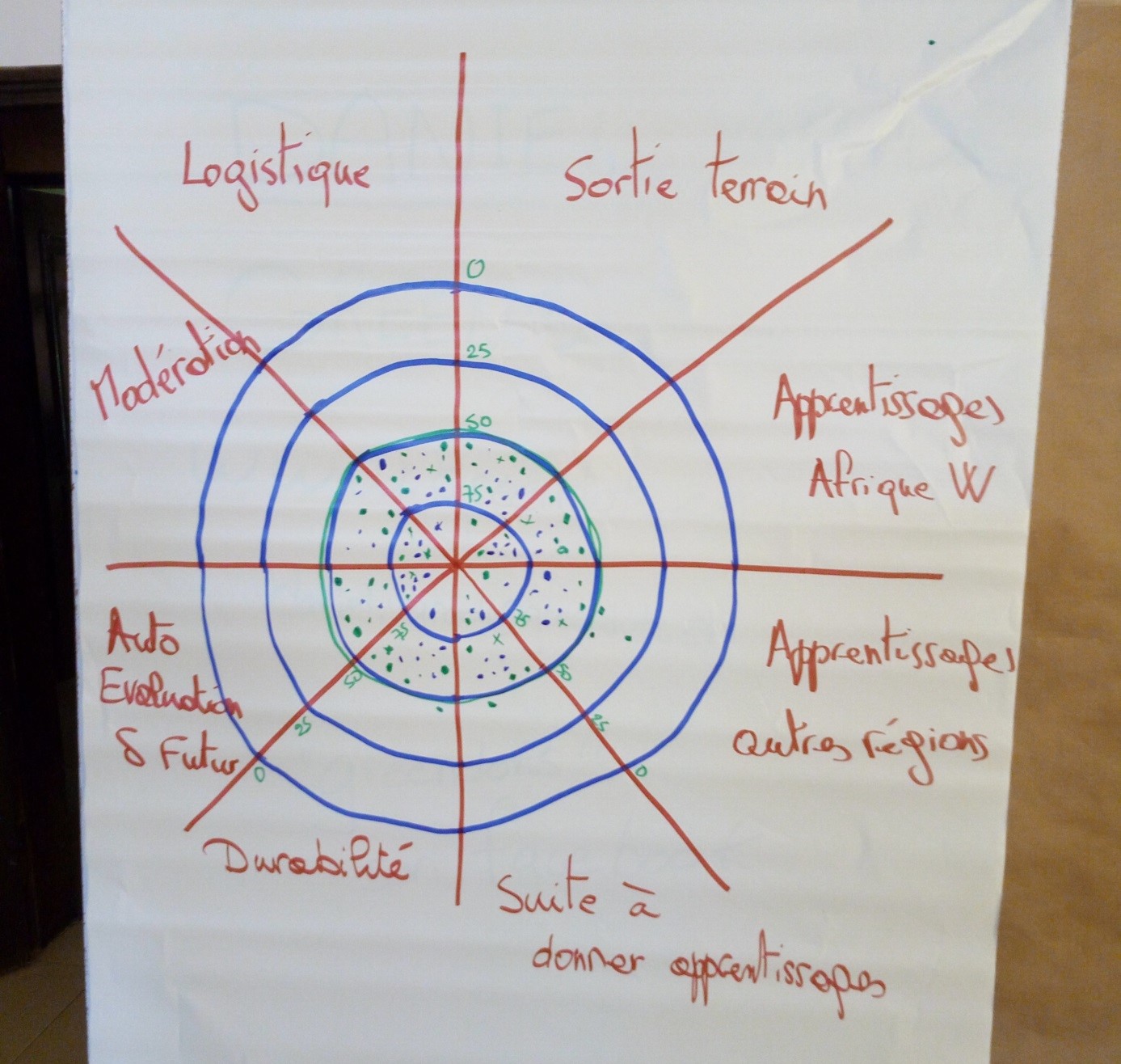1. December 2016

The third regional workshop in Francophone Africa was held from 3 to 7 October 2016 in Parakou, Benin. All 8 projects were represented with 19 participants from 6 different countries (Mali, Niger, Togo, Benin, Madagascar, Switzerland). The three main objectives of the workshop were:
- to share good practices and lessons learnt
- learn from technical expertise and solutions found in other projects
- to plan joint activities such as trainings, workshops, publication for 2017
All workshop objectives were met during a productive week of sharing knowledge and experience with presentations, videos, group work and two field visits. This year, a special focus was laid on discussing the sustainability of projects. The workshop participants conclude that the following factors are crucial to guarantee sustainability beyond duration of the project: 1) regular maintenance of public latrines 2) ensuring continuation of a public water provider and 3) building the capacity of local communities. During two days the workshop participants visited a drinking water project in schools, health centres and communities implemented by Helvetas Swiss Intercooperation in two communities in northern Benin. The participants conducted a SWOT analysis (Strengths, Weaknesses, Opportunities, Threats) of the visited project and made the following recommendations:
- Communities, health centers and schools need to be involved in the projects from the start
- Advice given by users of latrines needs to be taken into account when designing the project
- Success of ‘Blue School’ approach ought to be shared with the Ministry of Education in order to upscale the project.
- Provide training/ develop training materials to show the link between the water cycle, the environment and health
The workshop closed with an internal evaluation of consortium activities in Francophone Africa and a roadmap for exchange visits and joint activities in 2017. The evaluations highlighted that the participants appreciated the support of the regional advisor, effective learning and collaboration between organizations, the consortium intranet and access to information and trainings.